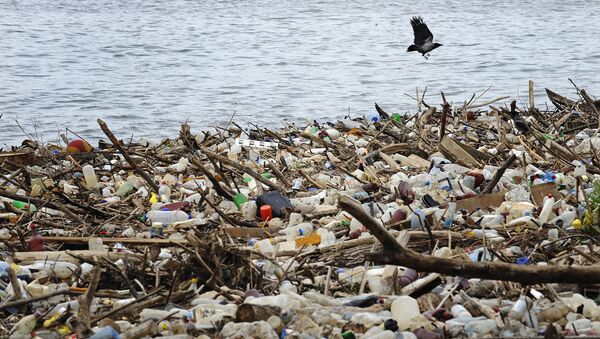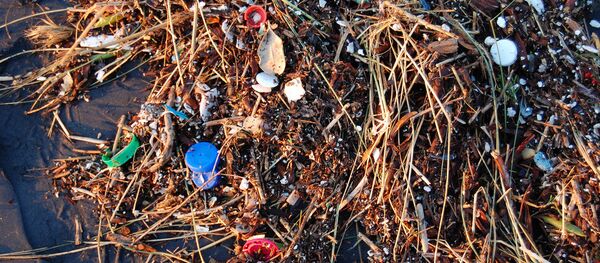Slat's concept utilizes natural currents and winds in order to let oceans "clean themselves." If the project becomes successful, it could be the biggest marine cleanup in history.
"Plastic in the ocean is a huge problem. It damages ecosystems, leads to the extinction of species and finally ends up in our food," Boyan Slat told Norwegian broadcaster NRK during his fundraising tour to the Nordic company, famous for its oil industry.
Inspecting the prototype…#TOCprototype pic.twitter.com/ePRLL5AUHc
— The Ocean Cleanup (@TheOceanCleanup) August 9, 2016
According to Slat's estimates, it will cost about €4.53 to remove one kilogram of floating plastic. In order to implement his far-reaching plans, Slat and his foundation the Ocean Cleanup need 1.4 billion NOK (roughly $150 million), along with technology and knowledge from the oil industry.
The Dutchman has become world famous for his plans and has already collected several million for the project after gaining support from renowned scientists.
"It is very fascinating that someone has such ambitious ideas," Cathrine Boccadoro, marine biologist and research director at the Research Institute of Stavanger, told NRK. Boccadoro has great faith in the project, although some of the plastic will never be caught using Slat's method. Most of the plastic polluting the oceans are namely microscopic particles.
So far, however, the oil industry seems to be happy to oblige. Karl Eirik Schjøtt-Pedersen, CEO of Norwegian Oil Industry Association, pointed out that much of the technology in the oil and gas industry is already being used in other industries, including renewable energy and aerospace.
Prototype successfully deployed, mission accomplished.#TOCPrototype pic.twitter.com/jtFo2QfwQ7
— The Ocean Cleanup (@TheOceanCleanup) June 23, 2016
"New ideas like this are very exciting, and I'm sure the oil and gas industry possesses both the technology and the knowledge that can help," Schjøtt-Pedersen told NRK.
Boyan Slat is the mastermind behind the Ocean Cleanup, an organization that consists of over a hundred volunteers, mostly scientists and engineers. Thanks to the support from more than 15 institutions and 3,000 investors, the project has made huge amounts of research. The surveys, which have taken some 400 days to carry out, have resulted in a 530-page report that concludes that the project is economically and technically feasible.
In May 2013, Slat was recognized as one of the 20 most promising entrepreneurs in the world.




